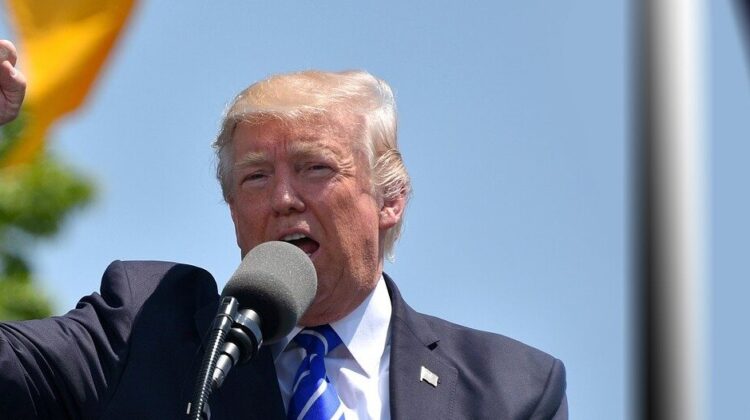
What President Trump’s positive COVID test could mean for the markets
President Trump’s shocking positive test result for COVID-19 could impact the U.S. stock market in the weeks ahead if the president’s condition worsens or if it influences the November elections.
The market impact on Friday, however, was surprisingly muted: The S&P 500 index closed the day down by 1 percent, while the Dow Jones Industrial Average was off by 0.5 percent. This suggests investors are not focusing on a dire outcome in which the president will have to turn over powers to Vice President Pence.
It remains to be seen whether markets will stay this calm. Following the close on Friday, Trump was taken to Walter Reed Hospital for observation. Press reports indicate that he is experiencing some ill effects from COVID-19.
Beyond concerns about the president’s health, investors at some point will consider the political ramifications of what has transpired.
According to the Washington Post, House Speaker Nancy Pelosi (D-Calif.) believes Trump’s condition may facilitate passage of a bipartisan economic relief deal to restore key provisions of the CARES Act that expired in July. Pelosi’s statement helped the stock market recover from news about President Trump, and confirmation of a deal would give it an added boost.
Until recently, there was a wide gap between congressional Democrats, who favored a $3 trillion spending package, and Republicans, who sought a “skinny bill” of about $1 trillion. This week, however, the gap narrowed as Democrats recrafted a $2.2 trillion package while the White House upped its offer closer to $1.6 trillion. On Friday, Pelosi said on MSNBC that, “This kind of changes the dynamic because here they see the reality of what we have been saying all along this is a vicious virus.”
Assuming the president is fully recovered in the next 10-14 days, he will only have a couple of weeks left to campaign actively for reelection. This will make it more difficult for him to narrow the gap in national polls that show Democratic presidential nominee Joe Biden ahead by an average of 7-8 percentage points.
Trump supporters hope his illness will help to gain sympathy for him with the electorate after he was criticized by many for being overly aggressive in the first presidential debate. Yet, what has happened to him leaves Trump even more vulnerable to charges that he mishandled the pandemic by downplaying its potential impact. Recent polling suggests it is seen as the most vulnerable issue for the president by two thirds of the U.S. electorate.
The big unknown at this juncture is how Trump will react once he has recovered. Will the experience make him appear humbler, as it did for British Prime Minister Boris Johnson? And will he now tell the American public it is imperative to wear face masks and practice social distancing.
Or will Trump react like Brazilian President Jair Bolsonaro and become more emboldened that COVID-19 is not as dangerous as many assert?
For his part, former Vice President Biden has taken the high road, saying that Trump’s positive test is a “bracing reminder” of the seriousness of the pandemic. In a speech to Michigan voters on Friday he said, “We have to take this virus seriously, it’s not going away automatically.”
One issue that Trump will not give ground on even if the coronavirus pandemic persists is his determination to keep businesses open and to re-open schools. He has not wavered from his view that “the cure cannot be worse than the problem itself.”
Trump’s handling of the economy continues to be the main issue where he has a more favorable rating than Biden, and he attacked Biden in the presidential debate for wanting to shutter the economy. Biden countered that a sustained recovery hinges on bringing the pandemic under control.
With the election now just one month away, the pace of recovery slowed in September in part because the CARES Act lapsed at the end of July. Moreover, there is now growing concern that a second wave of COVID-19 could appear in the months ahead with the number of U.S. cases increasing after Labor Day and colder weather approaching.
As voters head to the polls on November 3, therefore, the key issue weighing on them likely will be: “Are you better off – and safer today – than you were four years ago?”
Nicholas Sargen is an economic consultant and a lecturer at the University of Virginia Darden School of Business. He is the author of “Investing in the Trump Era: How Economic Policies Impact Financial Markets.”
